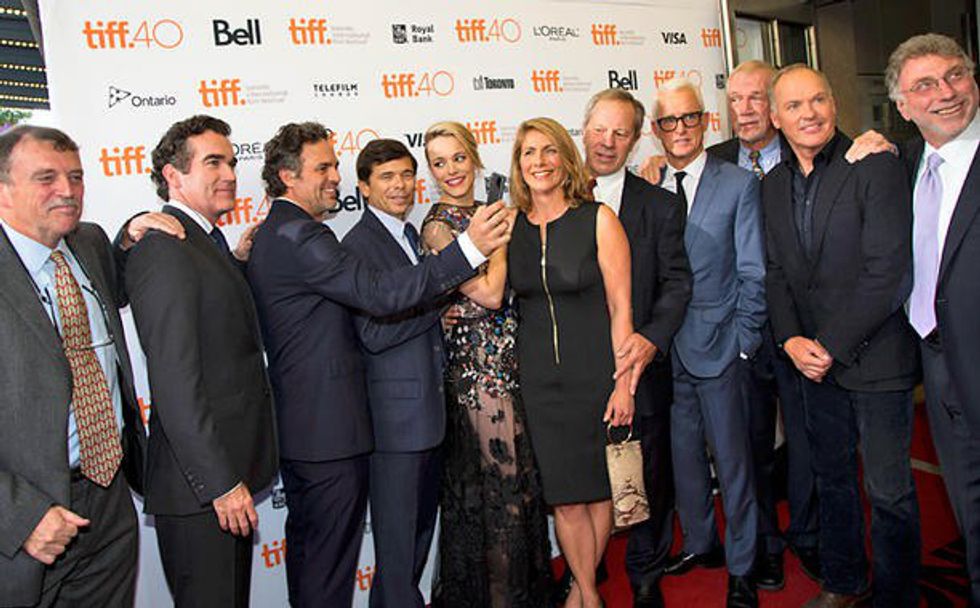Watching the docuseries VICE, my boyfriend commented, “I don’t think I like this correspondent. She seems biased”. I agreed. This particular host seemed often to frame interview questions, narrate and compile information in a way which allowed viewers like us to easily make assumptions as to her personal position on the matter, in this case the events at Guantanamo Bay. Nonetheless, the content is compelling and I will continue to watch each week. I wondered, do writers, journalists, bloggers, those producing documentary content for film and television, news anchors, or anyone else presenting factual information to the public need to be, themselves, totally unbiased? Can they be?
Considering my undergraduate studies in journalism, I attest that unbiased presentation of the news was deeply engrained in my education. In fact, there’s a somewhat outdated term to describe journalists or publications who flamboyantly present poorly researched news for ulterior purposes: “yellow journalism”. It’s not a term of endearment. Aloud, I reinforce by belief that journalists should be “unbiased”, but inside I don’t consider an unbiased journalist to be someone who has no opinions, influential background information or personal experiences. I was afraid to say that out loud. Didn’t want to seem Yellow.
However, when reconciling the presence of personal bias, it might be helpful to look at investigative journalism as being more like the scientific method. Imagine the process of the journalists on the Globe Spotlight team when breaking the Catholic Church sex abuse scandal in Massachusetts. Before any action is taken, they must first come up with a topic for research (‘Handling of sexual abuse within the Boston Catholic Church’), brainstorm the variables (‘Who? What? When? Where? Why? How?’), then create a few hypotheses (perhaps ‘The Archdiocese prevented abuse’, perhaps ‘The Archdiocese did not prevent abuse’). Keeping in mind that a hypothesis is nothing more than an educated guess, it may be proven or disproven after the experimentation is complete. Without the ability to question appearances, draw inferences and ask probing questions, journalists would be left on the couch watching Netflix. No one invited the Boston Globe journalists out to research Cardinal Bernard Law, interview victims, uncover years of lawsuit records, or confront the Archdiocese of Boston (and if you haven’t seen the movie Spotlight based off of these events, you’re missing out).
The fallibility of the hypothesis in science can be easily carried over to the writing process, as it is nearly impossible to find an unbiased human. Psychological researchers found that participants asked to suppress a particular thought still experienced this thought intruding into their time for free thinking (Hooper & McHugh, 2013). In other words, trying not to think of the color blue will most likely send blue intruding into your thoughts at times when it otherwise would not. If we cannot expect ourselves to be unbiased in all our thinking, how can we expect journalists to be so while they are collecting information, taking interviews, writing copy? In fact, building upon the Hooper and McHugh laboratory results, attempts to suppress thoughts while creating a story, like personal opinions or backgrounds knowledge, might leave journalists futilely focusing on suppressing their own bias and less open to taking in the entire field of information from both sides.
Going back to the scientific method, after all of the sources have been chased down, interviews transcribed and facts checked, it is the ultimate decision of the journalist to submit the information obtained, rather than a piecemeal of information which supports their initial hypotheses. This, rather than implicit unbiased virtue, is the make of a good journalist. It’s easy to cherry pick, but it is difficult and humbling to collect all of the appropriate information and recognize the need to present the opposing argument when the results don’t go your way. So, I suppose I owe the VICE journalist an apology, and submit that the compilation process of such hefty works are a colossal process that cannot be written off as “biased” by two at-home viewers. I don’t love her haircut. I’ll go with that.(pictured: Spotlight cast and the real-life Boston Globe journalists they played. via Entertainment Weekly)




















